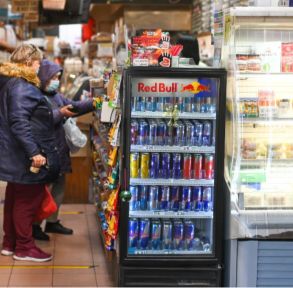Overview
As part of the UK Government’s strategy to reduce obesity levels and improve population diet, the Food (Promotions and Placement) legislation from October 2022. This legislation restricts multibuy promotions and prominent positioning of High Fat Salt and Sugar (HFSS) products in retail settings (both food and non-food retailers) both in-store and online (see regulation here and guidance here).
This landmark legislation aims to help improve public health and is predicted to have a substantial impact on the way products are marketed. Assessing how key stakeholders within the food system are reacting to the legislation and what preparations they are taking ahead of its introduction will provide important insight into the extent and breadth of legislation implementation and enforcement, highlighting support needs and potential unintended consequences.
Research Objectives
- To understand the stakeholder responses to, and preparations for, the upcoming Food (Promotions and Placement) Regulation 2021
- To map how this legislation will likely change the system of HFSS promotions and placement marketing in retail outlets
Methods
This is a qualitative study involving semi-structured interviews (individual and group) with n~20-30 representatives from each stakeholder group. Stakeholder groups include:
- Industry: Recruiting food/non-food retailers and food manufacturers using snowball techniques and online profile searches (i.e., Consumer Goods Forum, British Retail Consortium, Association for Convenience Stores, Iceland Foods, Sainsburys, Londis etc).
- Local authority enforcement officers: Recruiting Environmental Health and Trading Standards offices using snowball technique (i.e., Chartered Institute of Trading Standards, Chartered Institute for Environmental Health, Southampton City Council etc).
- Consumers: Recruiting participants from the WRAPPED study
- Health group representatives: Recruiting a purposive sample of representatives from health-related organisations using existing professional networks (i.e., Royal Society for Public Health, Cancer Research UK, British Heart Foundation, The Food Foundation, Obesity Health Alliance, Sustain, Biteback etc and relevant UK academics).
- Policy makers: Recruiting policy makers involved in development and implementation of the legislation (e.g., Department of Health and Social Care, Members of Parliament etc).
Rapid qualitative analysis will be conducted to analyse the perceived benefits, concerns and support needs for stakeholders to provide real-time feedback to policymakers. Results will be communicated through a policy brief and shared with stakeholders via a virtual conference (10th May 2022 – register here).
Thematic analysis will also be performed to gain in-depth insights into each stakeholder groups responses to, and preparations for, the legislation and to understand the processes stakeholders use to conform with government legislation and the impact this has on different groups. Thematic analyses results and relevant scientific literature will be used to create systems map to identify the context of food marketing strategies in retail settings and characterise the legislation’s impact on this system.
Public Health Benefits
The findings from this research will generate insights for effective and consistent implementation and enforcement of this legislation. It will also provide important learnings about the legislation’s likely impact on the wider system related to marketing strategies in retail settings and help to inform development and refinements of future diet related policies in the UK and internationally.
Research team: Mrs Preeti Dhuria, Dr Sarah Muir
Supervisory team: Dr Christina Vogel, Prof Janis Baird, Dr Emma Roe, Dr Wendy Lawrence


